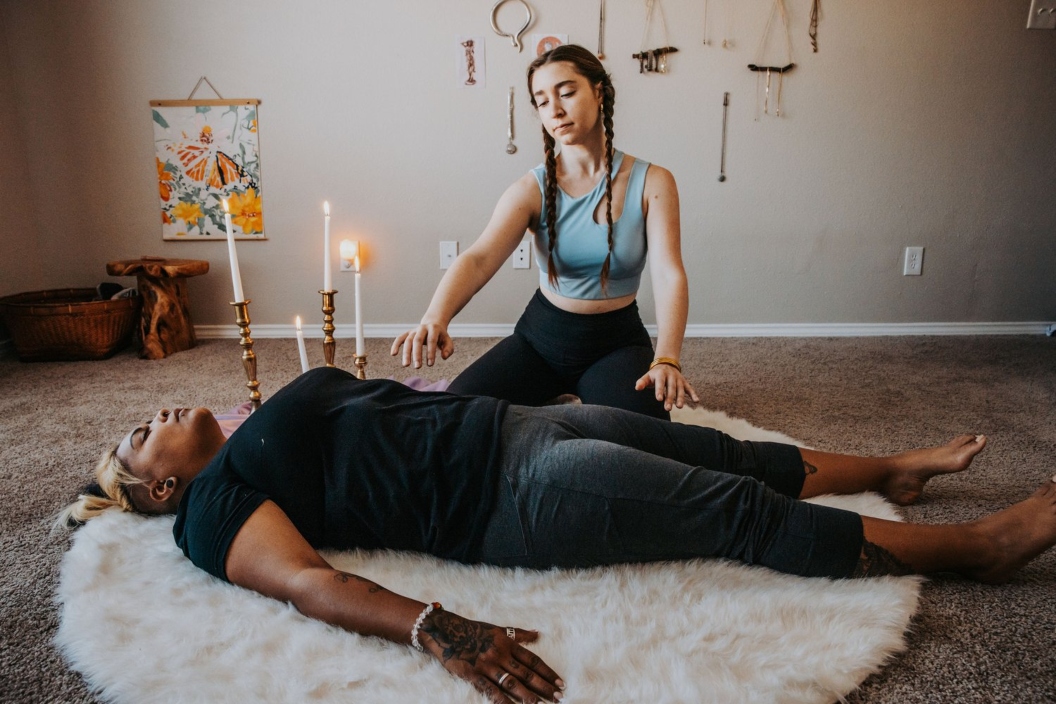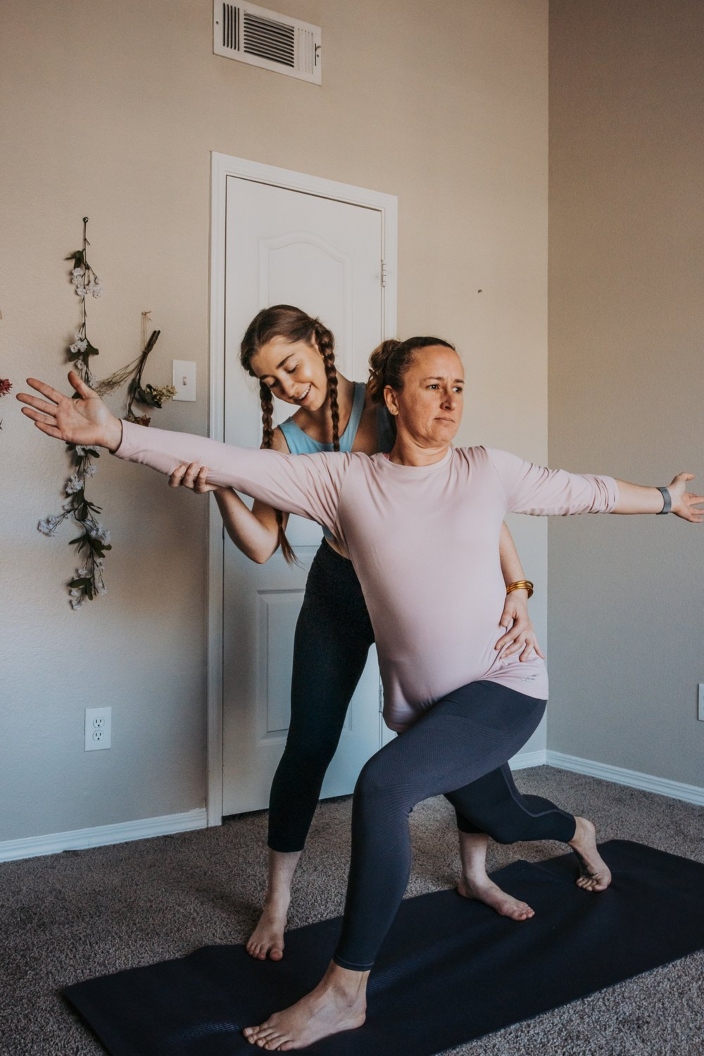Natalie Raphael, spiritual guide, feminine empowerment coach and founder of Modern Woman Yoga shares her insight on healing.

By Natalie Raphael, Photos courtesy of Natalie Raphael
No matter how many tumultuous waves we may be surfing in our external world, we all deserve to feel radiant. As a teacher of modern yoga for modern women, I work with many women that feel out of touch with their radiance and are not sure how to reconnect with it.
Below are the best practices that I’ve witnessed for healing and elevating modern women’s minds, bodies and spirits.
MIND

Do you ever feel like you’re too anxious to sit still or meditate and “be zen?” Me too – and that’s why breathwork is one of my favorite tools.
Breathwork refers to a set of practices that involve conscious control and manipulation of the breath for various purposes, such as relaxation, stress reduction, and emotional well-being. By intentionally altering the way we breathe, we can influence our physical, mental, and emotional states.
You may have tried deep slow breathing before in a yoga class. Regardless, you don’t need to go to a yoga class in order to try this practice out.
I encourage clients to try breathing to the beat of a song. Music can help us get out of our heads and further into our bodies, so why not liven up your practice with a feel-good song that you can breathe to the beat to
How to practice breathwork
- Choose a song with a consistent beat
- Breathe to the beat of the song in through your nose and out through your mouth
- You can play with different variations of how long the in-breath and the out-breath is, let it be intuitive
- Typically, a breath out that is at least as long as the breath in is recommended for reaching a peaceful, balanced state of being
- As long as you are breathing slowly and deeply, you’re doing it
SPIRIT
For many women, the body and the senses can act as gateways to healing and empowerment, so a self-touch meditation is a fantastic place to begin.
Self-touch meditation, also known as self-massage meditation or self-compassion touch, is a form of meditation that involves using gentle touch and focused awareness to cultivate self-compassion, relaxation, and a deeper connection with oneself.
A self-touch meditation can help foster a deeper connection with your body, cultivates self-acceptance, and promotes a sense of relaxation and well-being.
Plus, self-touch also gifts us an oxytocin high, that feel-good hormone also known as the “cuddle hormone.”
How to practice self-touch meditation
- Place one hand on your heart and one hand on your belly
- See if it’s possible to release any expectations of how or what you’re supposed to feel during this practice
- Take a few deep breaths into your hand and your heart
- Notice the preciousness and tenderness of you
- Begin to gently and intuitively massage the heart and womb space
- Once this feels complete, return your attention back to the breath to close your practice
Intuitive Movement

Intuitive movement refers to a style of physical movement that emphasizes listening to and following the body’s natural cues and instincts. It involves allowing the body to move in a way that feels authentic and aligned with one’s inner guidance, rather than following prescribed or structured movements.
As women, we’re told many stories about how to look and move in this world. One of the most freeing things we can do is challenge those stories and reclaim our sovereignty by quite literally, embodying a different state.
Engaging in intuitive movement can have several benefits, including increasing our intuition, self-trust, and confidence, and cultivating a positive relationship with our bodies.
By gifting yourself what your body is actually craving as opposed to what someone on a workout video is telling you to do, you are breaking through old patterns and belief systems that may sound like “I can’t trust myself” or “My body is something I shouldn’t listen to.”
Each individual’s intuitive movement practice will be unique, and it may evolve and change over time. It’s recommended to approach intuitive movement with curiosity, openness, and a non-judgmental attitude, allowing your body to guide you in the exploration of movement.
How to practice intuitive movement
- Choose some songs that make your spirit feel alive. These songs may evoke any emotion of your choice.
- If you feel comfortable, I suggest starting with your eyes closed
- Simply listen to the music
- Let the music guide your movement as opposed to the mind
- When the thinking mind wants to come in and be part of the experience, acknowledge it, and lovingly let it know that right now you’re focusing on connecting your body, breathing, and movement to the sounds
- Let the movement be as abstract and expressive as your heart desires
To explore these concepts deeper and book a private healing session with Natalie, visit modernwoman.yoga.
Natalie Sophia is a spiritual guide, movement instructor, and feminine empowerment coach. She utilizes the wisdom of the body and the heart to guide modern women to a place of ease.

